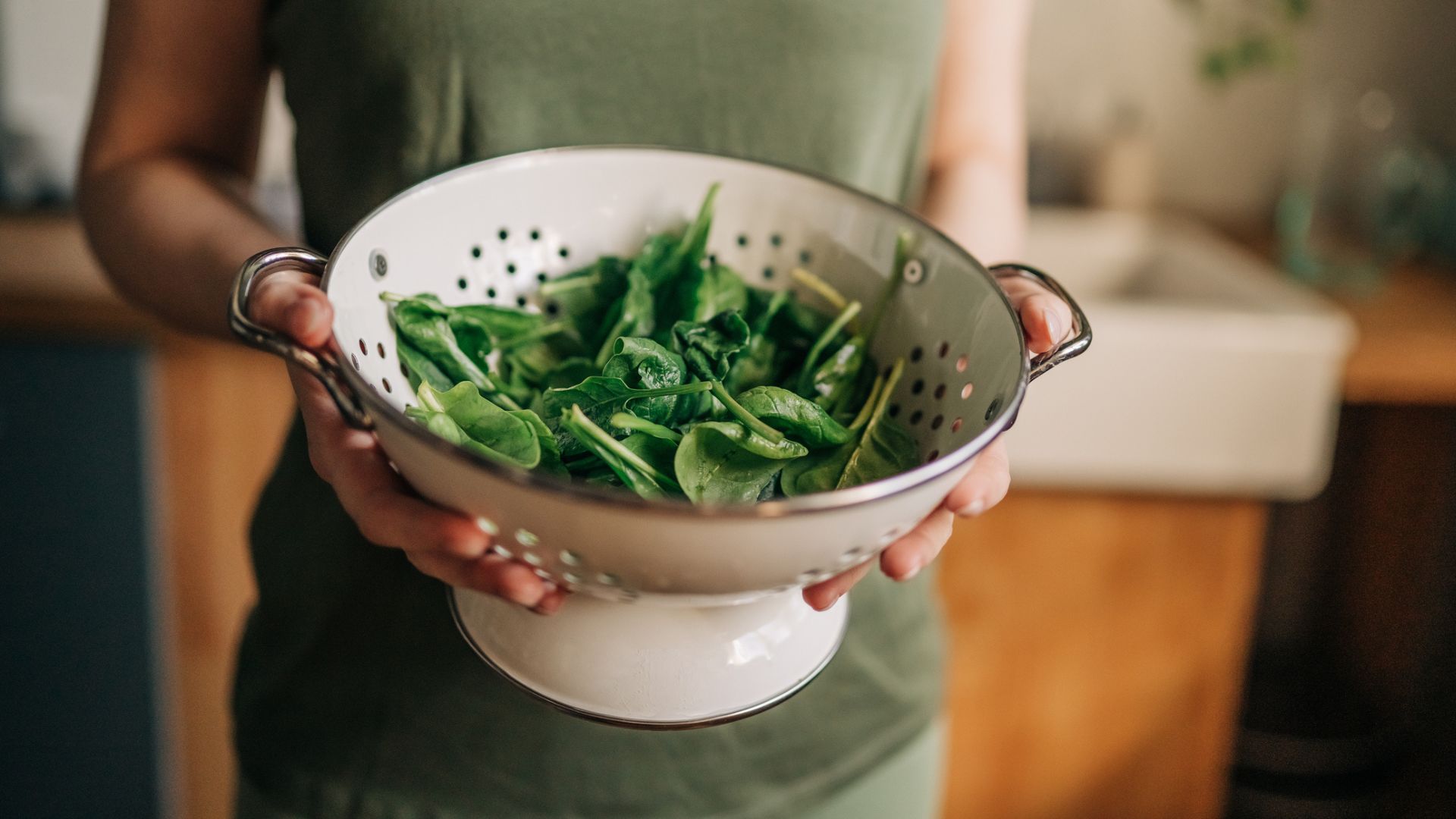New study reveals the popular diet proven to 'decrease' the risk of cognitive decline - but only in women
A new study has found that a popular diet can help keep the brain healthy as we age, but only women benefit


Wondering how you can boost your brain health? A new study has found that sticking to one popular diet can help maintain a healthy brain and "decrease" the risk of cognitive decline over the years to come.
If you're interested in food and how what we eat impacts the body, the Mediterranean diet won't be an unfamiliar concept. The MIND diet is very similar. Mediterranean-Dietary Approaches to Stop Hypertension Intervention for Neurodegenerative Delay (MIND) focuses on foods with proven benefits for brain health - including green vegetables, fruits, nuts, whole grains, and lean meats. Ultra-processed foods are out, fresh foods are in.
A new study has proven a link between this way of eating and "a decreased risk of cognitive impairment" and decline. The study, published in the Neurology Journals, looked at participant data from a food questionnaire and examined the connection between sticking to the MIND diet, cognitive impairment, and the trajectory of cognitive function over time in Black and White participants.
To make sure they were truly looking at the diet's impact, the researchers adjusted scores to allow for other influencing factors - including age, sex, various pre-existing health conditions, and lifestyle factors, such as daily movement, weight, and smoking habits. The average age of participants was 64 years and over half were women.
They found that strong adherence to the MIND diet was associated with a decreased risk of cognitive impairment, suggesting one way to maintain a healthy brain in the years to come is to focus on foods that primarily benefit the brain. Importantly, they only found this connection in female participants.
How well someone maintained the MIND diet was also a better predictor of cognitive decline with age in Black participants only.
That's not to say that men can't also benefit from this way of eating though as the research supports other, older studies from Rush University Medical Research Center and the University of Queensland that suggest the MIND diet reduces the risk of developing Alzheimer's disease and slows down age-related cognitive decline.
Sign up to our free daily email for the latest royal and entertainment news, interesting opinion, expert advice on styling and beauty trends, and no-nonsense guides to the health and wellness questions you want answered.

Leafy green vegetables like spinach are a key part of the MIND diet.
What is the MIND diet?
Strictly speaking, the MIND diet is a hybrid of the Mediterranean and DASH (Dietary Approaches to Stop Hypertension) diets, says Dr Amy Reichelt, a nutritional neuroscientist, and it's completely based on foods beneficial for brain health.
She says: "[These foods] are high in antioxidants, which protect brain cells from damage from free radicals and oxidative stress; they reduce inflammation, which is linked to cognitive decline; they provide nutrients like omega 3s, B vitamins, and vitamin E that support neural communication and brain function," she explains.
Foods to eat on the MIND diet include:
- Green leafy vegetables: "These are packed with antioxidants, vitamins, and nutrients that protect the brain, as well as being good sources of insoluble fibre to support gut health. Examples include spinach, kale, and broccoli," says the neuroscientist.
- Nuts: "Walnuts, almonds, and other nuts are high in healthy fats such as Omega 3 fatty acids that support neuron function."
- Berries: "Berries, especially blueberries, are rich in flavonoids that have been shown to improve memory and slow cognitive decline, as well as being low sugar so they don’t induce glucose spikes," she says.
- Whole grains: "Whole grains like whole wheat, brown rice, and oats provide complex carbs, fibre, and B vitamins important for brain health."
- Beans: "Beans and legumes are a good source of plant-based protein, fibre, and antioxidants, which support the gut microbiome," says Dr Reichelt. They are also a protein-rich food that can help you stay fuller for longer, reducing sweet cravings.
- Fish: "Fatty fish like salmon, sardines, and mackerel are high in Omega-3 fatty acids that reduce inflammation and support brain health."
- Poultry: "Chicken and turkey provide lean protein without the saturated fat of red meat."
- Other vitamin-rich vegetables: "Vegetables like carrots, tomatoes, and bell peppers also provide beneficial nutrients for the brain, particularly vitamin C and vitamin A which are antioxidants," she says.
But, the neuroscientist warns, it's not all about what you eat. Getting regular exercise, sleeping well, and engaging in mentally stimulating activities, as well as reducing stress, are also important for maintaining a healthy brain.
"Regular exercise improves blood flow and stimulates the growth of synapses between neurons via the process of neuroplasticity, getting enough quality sleep allows the brain to rest and consolidate memories, and engaging activities like reading, puzzles, or learning new skills stimulates the brain," she says.

Grace Walsh is woman&home's Health Channel Editor, working across the areas of fitness, nutrition, sleep, mental health, relationships, and sex. She is also a qualified fitness instructor.
A digital journalist with over seven years experience as a writer and editor for UK publications, Grace has covered (almost) everything in the world of health and wellbeing with bylines in Cosmopolitan, Red, The i Paper, GoodtoKnow, and more.